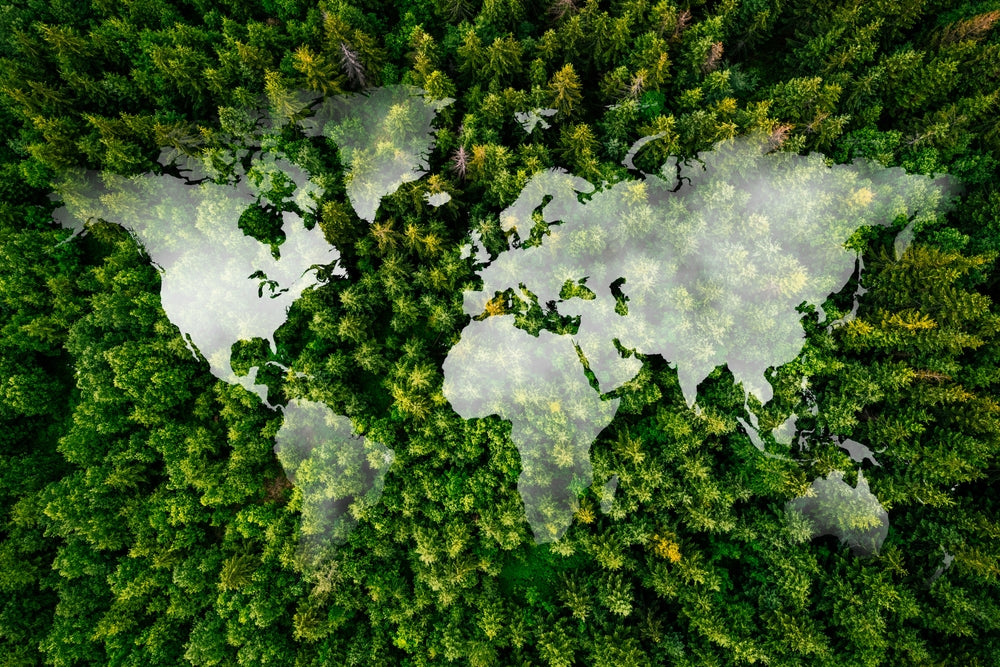Add description, images, menus and links to your mega menu
A column with no settings can be used as a spacer
Link to your collections, sales and even external links
Add up to five columns
Add description, images, menus and links to your mega menu
A column with no settings can be used as a spacer
Link to your collections, sales and even external links
Add up to five columns

Coffee and Climate Change
July 25, 2024 3 min read
Coffee and Climate Change
How Does Climate Change Affect Coffee Production
What It Means for You and How to Ensure a Sustainable Future
Climate change is an undeniable force that is reshaping industries worldwide, and the coffee industry is no exception. As a coffee and tea business, understanding the impacts of climate change on coffee production and exploring sustainable solutions is crucial for the future of our beloved beverage. In this blog post, we'll delve into how climate change is affecting the coffee industry, what it means for consumers and ways we can keep coffee growing and selling sustainably.
The Effects of Climate Change on Coffee Production
Rising Temperatures and Unpredictable Weather Climate change is leading to higher global temperatures and more erratic weather patterns. Coffee plants, particularly the Arabica variety, are highly sensitive to temperature changes. Optimal growing conditions for Arabica coffee exist within a narrow temperature range of 18-21°C (64-70°F). When temperatures rise above this range, it can stress the plants, reducing yield and quality.
Increased Pests and Diseases Warmer temperatures and changing precipitation patterns create favorable conditions for pests and diseases that affect coffee plants. One of the most notable threats is coffee leaf rust, a fungal disease that thrives in warmer, wetter conditions. This disease has devastated coffee crops in regions such as Central and South America, leading to significant economic losses for farmers.
Shift in Coffee Growing Regions As traditional coffee-growing regions become less suitable due to climate change, farmers are forced to seek higher altitudes or different locations to cultivate their crops. This migration can be costly and challenging, often requiring new infrastructure and adaptation to different growing conditions.
What This Means for Consumers
Higher Prices and Scarcity The impacts of climate change on coffee production can lead to reduced supply, which in turn can drive up prices. Consumers may start noticing higher prices for their favorite coffee brands and potentially a scarcity of certain varieties.
Changes in Coffee Quality As farmers adapt to new growing conditions, the taste and quality of coffee may change. The unique flavors that come from specific regions might be harder to maintain, leading to variations in the coffee profiles that consumers are accustomed to.
Sustainable Solutions for the Coffee Industry
Supporting Sustainable Farming Practices One of the most effective ways to combat the effects of climate change on coffee production is to support sustainable farming practices. This includes agroforestry, where coffee is grown under the shade of trees. This method not only helps in maintaining biodiversity but also creates a microclimate that can protect coffee plants from extreme weather conditions.
Investing in Climate-Resilient Coffee Varieties Research and development of climate-resilient coffee varieties are crucial. These new strains are designed to withstand higher temperatures and resist diseases, ensuring that coffee production can continue even under changing climate conditions.
Building Infrastructure and Providing Education Investing in infrastructure that supports irrigation, soil management, and pest control can help farmers adapt to climate change. Additionally, providing education and resources to coffee farmers about sustainable practices and climate change adaptation is essential for long-term resilience.
Consumer Choices As consumers, choosing to buy coffee from brands that prioritize sustainability can make a significant difference. Look for certifications such as Fair Trade, Rainforest Alliance, or Organic, which indicate that the coffee has been produced with environmental and social considerations in mind.
Conclusion
The effects of climate change on the coffee industry are profound, impacting both production and consumption. However, by supporting sustainable practices, investing in resilient coffee varieties, and making informed consumer choices, we can help ensure that coffee continues to thrive in a changing climate. As a coffee and tea business, we are committed to promoting sustainability and working with our partners to create a resilient future for coffee.
By taking action today, we can preserve the rich flavors and cultural significance of coffee for generations to come. Let's enjoy our favorite brews while also being mindful of the environment and the people who bring us this beloved beverage.
For more insights and to support sustainable coffee, visit our blog and explore our range of ethically sourced coffee products. Together, we can make a difference.
Subscribe
Sign up to get the latest on sales, new releases and more …
